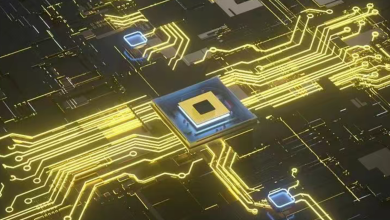
CNC Machining Meets Innovation: How Shenzhen Drives Hardware Startups
When people talk about the rise of Shenzhen as a global technology hub, they often focus on its fast-growing electronics industry, thriving maker culture, and the city’s ability to scale production at unmatched speed. Yet beneath these headlines lies a quieter force that makes this ecosystem possible: CNC machining. For startups navigating the uncertain road from prototype to mass production, CNC machining is not just a tool—it’s the backbone of innovation.
As someone who has followed Shenzhen’s hardware boom for years, I’ve seen how the combination of precision engineering, flexible supply chains, and entrepreneurial ambition has transformed the city into the “Silicon Valley of Hardware.” More importantly, recent industry news highlights how CNC machining is evolving to meet the demands of new-age startups, especially in fields like electric mobility, consumer robotics, and AI-driven devices.
Why CNC Machining Matters for Startups
For any young company, time is the scarcest resource. Hardware entrepreneurs don’t have the luxury of endless trial and error. They need accurate prototypes, functional parts, and a clear pathway to production—all delivered quickly. This is where CNC machining makes the difference.
Unlike 3D printing, which is excellent for conceptual models, CNC machining offers production-grade parts with tight tolerances. This matters when you are designing drone frames that must withstand outdoor conditions, wearable medical devices that need biocompatibility, or precision housings for consumer electronics.
Startups in Shenzhen often turn to providers like Samshion Rapid because they combine speed with precision, enabling early-stage companies to experiment with designs without fear of delays or compromised quality.
The Shenzhen Advantage
What sets Shenzhen apart from other manufacturing hubs is its ecosystem. In cities like San Francisco or Berlin, entrepreneurs may have access to venture capital and design talent, but Shenzhen offers something different: a complete industrial chain. Within a few kilometers, a startup founder can find CNC machining workshops, PCB factories, assembly lines, packaging services, and logistics providers ready to ship globally.
This density creates a “hardware highway,” where products move from concept to market in weeks rather than months. A recent report by South China Morning Post noted that hardware teams in Shenzhen can complete three iterations of a product in the time it might take a Western counterpart to finish one. The reason is simple: rapid prototyping supported by CNC machining and local expertise.
With services such as CNC machining, startups can easily test different material choices, adjust tolerances, and validate performance—all without leaving the city.
Industry Trends: AI, EVs, and Sustainability
Recent news shows how CNC machining is evolving alongside global technology trends.
- AI-Driven Hardware
As artificial intelligence reshapes industries, Shenzhen has seen a surge of startups building smart home devices, autonomous robots, and industrial sensors. Many of these products require compact housings with intricate details, which CNC machining delivers with consistency. The ability to quickly machine aluminum or engineering plastics allows these companies to keep pace with fast-changing AI software updates. - Electric Vehicles and Micro-Mobility
The EV boom has made headlines worldwide, and Shenzhen is no exception. Startups producing battery casings, lightweight frames, and cooling systems rely heavily on CNC machining for both prototyping and early production. In fact, several micro-mobility brands have emerged in the city, leveraging Shenzhen’s ability to produce custom parts on demand. - Sustainability and Green Manufacturing
With climate change in focus, there’s increasing demand for sustainable manufacturing processes. CNC machining is now being paired with recycled materials and optimized workflows to minimize waste. Shenzhen’s workshops are adopting these methods to meet the expectations of eco-conscious startups, particularly those in Europe and North America.
Personal Perspective: Lessons from Visiting a Shenzhen Workshop
On my last trip to Shenzhen, I had the chance to walk through a small CNC workshop in Bao’an District. What struck me wasn’t just the high-tech machinery but the speed of collaboration. Engineers worked side by side with startup founders, tweaking CAD designs in real time and testing small batches the same day.
As one founder explained to me, “Back home, it takes three weeks just to get quotes. Here, I can iterate daily. That’s the only way to compete in hardware.” His words underline why Shenzhen continues to attract global entrepreneurs: it’s not just about cost savings, it’s about momentum.
Challenges Ahead
Of course, Shenzhen’s CNC ecosystem faces challenges. Rising labor costs, stricter environmental regulations, and increasing competition from regions like Vietnam and India mean the city must continue to innovate. At the same time, global supply chain disruptions—highlighted by the semiconductor shortage during the pandemic—have shown that even Shenzhen is not immune to external shocks.
Yet I believe Shenzhen will adapt. Its combination of local expertise, global demand, and relentless entrepreneurial spirit is hard to replicate. For startups seeking speed, quality, and scale, Shenzhen remains a natural choice.
Final Thoughts
CNC machining may not grab headlines like AI or blockchain, but it’s the unsung hero powering Shenzhen’s hardware revolution. It allows startups to move fast without sacrificing quality, bridges the gap between prototype and production, and keeps innovation grounded in reality.
For entrepreneurs with bold ideas—whether in robotics, EVs, or next-generation consumer devices—the city offers something truly unique: the ability to test, iterate, and launch on a global scale. And with trusted partners like Samshion Rapid, hardware dreams don’t have to remain on the drawing board—they can become market-ready products in record time.





